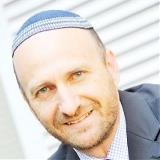Voices
Online Yom Hashoah focuses on youngsters

Last year’s COVID-19 lockdown rendered impossible the traditional Yom Hashoah commemorative gatherings. Instead, the South African Jewish Board of Deputies (SAJBD), working with the South African Holocaust Foundations, survivors, and other stakeholders, organised a single national virtual Yom Hashoah ceremony for the entire country. This was a signal success, with more than 17 000 people participating. While we are no longer subject to the hard lockdown conditions that prevailed in 2020, the COVID-19 threat is still far from over, hence this year, we will once again be hosting a combined online ceremony. The event is being organised by a national Yom Hashoah planning committee, once again headed by SAJBD National President and Durban Holocaust Centre Director Mary Kluk, and will take place on 9 April at 12:00.
As can never be stressed enough, each victim of the Shoah wasn’t a statistic but a distinct, unique individual, one whom others loved, esteemed, and cared about. For this reason, the practice of preceding Yom Hashoah gatherings with reading out of some of the names of those who perished is now commonplace throughout the world. For this year’s ceremony, we have launched a campaign to encourage community members to send through the names, place, year of birth and, where known, the year of death of family members lost to the Shoah. This will feature in the online programme. In line with the emphasis on passing on the torch of remembrance to the next generation, we encourage younger community members in particular to participate by providing us with these details, even (or perhaps especially) though they won’t personally have known the people whose memory they are helping to perpetuate. To send through these details as well as for further information on the event, write to yomhashoah2021@gmail.com.
COVID-19 and interfaith activism
Confronting the COVID-19 threat is inextricably bound with adapting everyday behaviour to minimise contracting and spreading infection. The leaders of various faith communities have a vital role to play because of their ability to guide and influence their respective constituencies, and hence they have been identified as an important resource by governments around the world. Mary Kluk continues to represent our community on the Ministerial Advisory Committee on Social & Behavioural Change, and our leadership has been participating in several other interfaith forums, including the president’s meetings with religious communities. For the United Nations World Interfaith Harmony Week, our Cape Council held a webinar titled “Coping with COVID-19 – thoughts of the interfaith community”. Speakers included representatives of the Jewish, Christian, Muslim, and Baha’i communities, as well as the Western Cape government interfaith team. The event was fully subscribed, attracting many from other faith communities and nongovernmental organisations with others participating via Facebook. We commend our Cape colleagues on this most worthwhile initiative.
- Listen to Charisse Zeifert on Jewish Board Talk, 101.9 ChaiFM, every Friday from 12:00 to 13:00.
